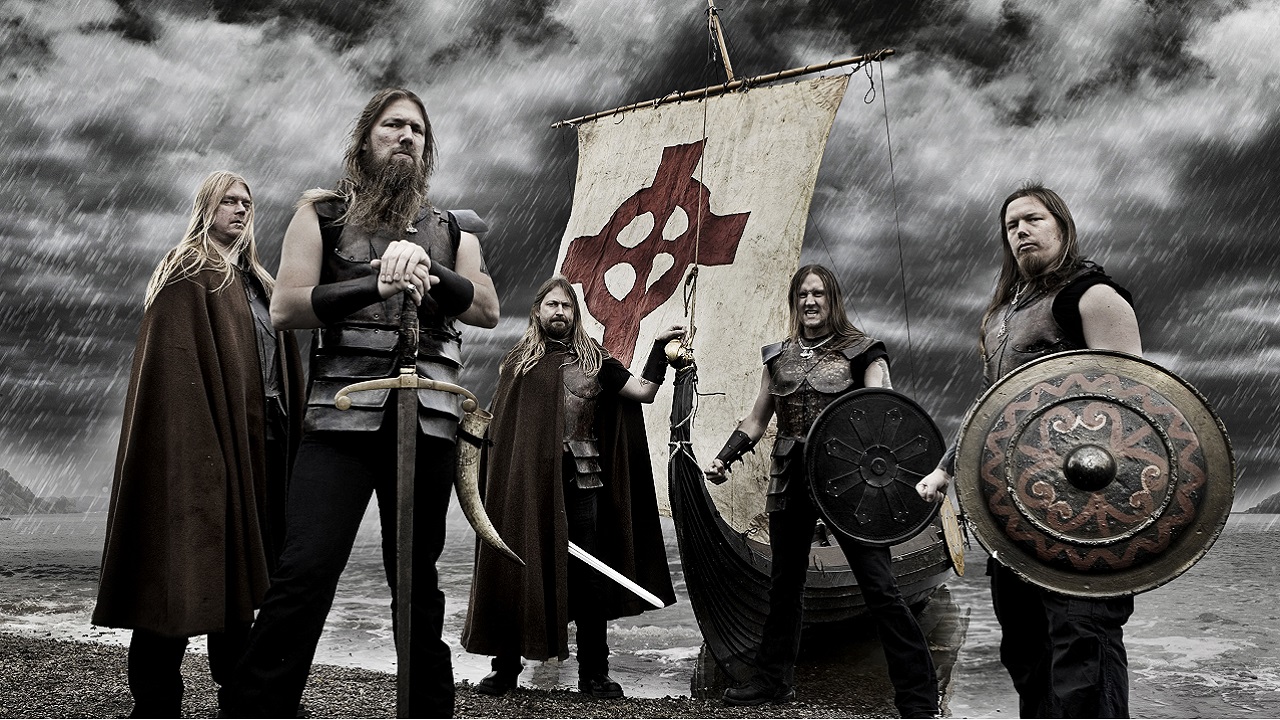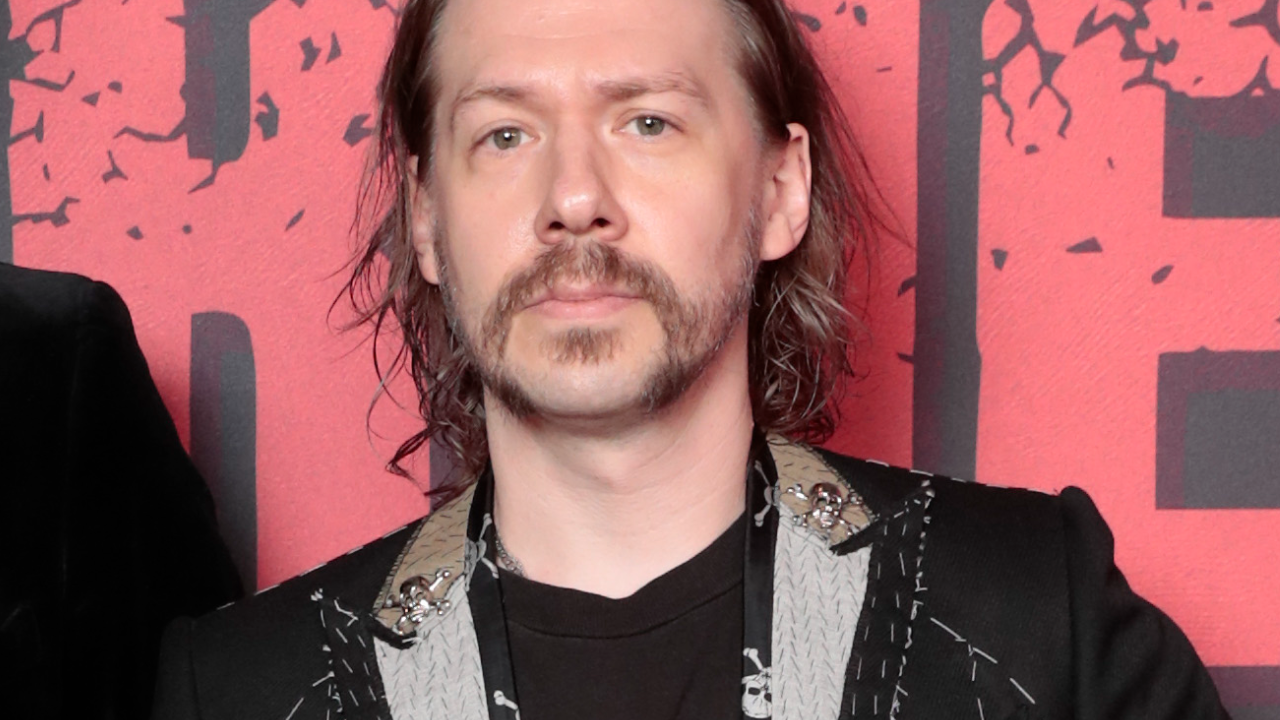"We were ahead of our time": How tales of Thor, lightning-spewing hammers and a battle to the death at the end of the world turned Amon Amarth into the world's favourite heavy metal Vikings
Amon Amarth's Thor-referencing epic Twilight Of The Thunder God also gave the band their breakthrough hit

Select the newsletters you’d like to receive. Then, add your email to sign up.
You are now subscribed
Your newsletter sign-up was successful
Want to add more newsletters?

Every Friday
Louder
Louder’s weekly newsletter is jam-packed with the team’s personal highlights from the last seven days, including features, breaking news, reviews and tons of juicy exclusives from the world of alternative music.

Every Friday
Classic Rock
The Classic Rock newsletter is an essential read for the discerning rock fan. Every week we bring you the news, reviews and the very best features and interviews from our extensive archive. Written by rock fans for rock fans.

Every Friday
Metal Hammer
For the last four decades Metal Hammer has been the world’s greatest metal magazine. Created by metalheads for metalheads, ‘Hammer takes you behind the scenes, closer to the action, and nearer to the bands that you love the most.

Every Friday
Prog
The Prog newsletter brings you the very best of Prog Magazine and our website, every Friday. We'll deliver you the very latest news from the Prog universe, informative features and archive material from Prog’s impressive vault.
Hammers are important in metal. That much should be obvious from the name of this magazine. For Amon Amarth, the hammer is a symbol of utmost importance, and no live show would be complete without the sight of frontman Johan Hegg brandishing a hefty replica of Thor’s own weapon of war.
This occurs at the start of Twilight Of The Thunder God, the opening and title track of Amon Amarth’s seventh album, released in 2008. These days, Amon Amarth are ubiquitous and beloved in the metal scene, but prior to their global conquest the Swedes spent a solid decade touring relentlessly, honing their sound and building upon their trademark Viking imagery. Twilight… may have been the eventual breakthrough that the band deserved, but the real transitional moment came one album earlier.
“After we made [2004’s] Fate Of Norns, we decided we couldn’t keep producing ourselves,” Johan says. “We needed someone to take the reins and help us maximise the songs. We had good ideas, but felt we needed help to make them better. Everything was all over the place. When we started to work with Jens Bogren on [2006’s] With Oden On Our Side, the songs came together in a better way. Everything about the production became better, and so that became a small breakthrough for us, then Twilight… became the big one…”
If With Oden On Our Side had loudly alerted metallers in the UK and beyond to the European scene’s best-kept Viking secret, Amon Amarth’s next album promised to be bigger and better in every way. Recorded at Fascination Street in Örebro, Sweden – once again with Jens Bogren at the controls – Twilight…’s title track was arguably the song that doubled the Swedes’ fanbase overnight. For Johan Hegg, writing the song represented a purposeful resetting of his lyrical approach.
“For both Fate Of Norns and With Oden On Our Side, we strayed away from the mythology and went more into history,” he notes. “Those albums have mythological elements, but they were more about historical points of view. One of the things we said going into writing Twilight… was that mythologybased lyrics had been a signature for us, so we wanted to get back into that. We’ve written songs about Ragnarök before, but this time we focused more on the main characters. Plus, the imagery is perfect for a metal band!”
Ragnarök is the ultimate destruction of the gods in a battle with evil, and Twilight…’s title song tells the story of Thor killing his enemy, Jörmungandr, a bloody massive sea serpent, with a hammer blow. Unfortunately, he then dies from Jörmungandr’s venom. Amon Amarth stuck faithfully to the Norse legend, rousingly referencing Mjölnir (the actual hammer), Oden and Hlódyn (Thor’s mum). In doing this, Amon Amarth were way ahead of the cultural curve, beating the likes of Marvel and The History Channel’s Vikings TV series to the punch when it came to exploring Norse mythology and Viking culture.
“I guess we were ahead of our time, but for us, living in Scandinavia, it isn’t anything new,” Johan admits. “People are catching up with Norse history. It’s not just pop culture, either – things have taken off in archaeology and research too. There is so much new information out there. We didn’t go deep into that stuff at school, so most of it I had to learn on my own. Writing about it has fed my interest, for sure.”
Sign up below to get the latest from Metal Hammer, plus exclusive special offers, direct to your inbox!
Twilight Of The Thunder God is an album with no shortage of righteous metal bangers, so Amon Amarth were spoiled for choice when it came to selecting an opener. Johan recalls that the song Twilight… was regarded as one of the strongest written for the album, but possibly not the most obvious opening or title track.
“We wanted it to be the title of the album, but that was a big discussion,” he laughs. “Bathory had released Twilight Of The Gods, and we were thinking that it’s OK if a song is called Twilight Of The Thunder God, but the album? In the end we just had to call it that. It’s the best songtitle we had! The idea was to have Twilight… as the second song, and to start with Free Will Sacrifice, but I think Olavi [Mikkonen, guitarist], who wrote the song, used his veto and insisted on Twilight… It was a good decision. It sets the tone for the whole album.”
Released on September 17, 2008, Twilight… was easily recognisable as one of those moments, when a band transcends their underground roots and connects with the wider world.
The raging grandeur of the title track is merely a precursor for a near-flawless 44 minutes of triumphant melodic death metal. From the Byzantine belligerence of Varyags Of Miklagaard and the ferocious attack of Live For The Kill (featuring a cameo from Finnish symphonic virtuosos Apocalyptica), to the sprawling colossus of closer Embrace Of The Endless Ocean, Twilight… was as sharp and devastating as a warrior’s axe. For added metal points, the stunning Guardians Of Asgaard features vocals from the late, great LG Petrov of Entombed (and Entombed AD).
“That was fun! Ha ha!” Johan grins. “We asked LG if he wanted anything for doing it, and he said, ‘A case of beer and a burger will be fine!’ He was such a cool guy. It was always fun to hang out with him, he was just so genuine.”
As has become clear over the last 15 years, a lot of people are enthusiastic about tales from the Viking era. Johan has done more than most to introduce these incredible stories and sagas to a new audience, and it’s plain he does it all with a sincere love of his subject.
“I know why it resonates with me, but that may not be why it resonates with other people,” he shrugs. “For me, obviously, they’re awesome stories. If you read the mythology, the stories are fun! There’s a lot of humour. It’s also very human. The gods, they’re not flawless and they make mistakes. They behave badly. They are pitiful but they are also great, so in a way they’re very human. What they do resonates with what it means to be a human being.”
Putting all seriousness and academic curiosity aside, it is equally true that Twilight… is an absolutely ripping metal song about a big guy with a massive hammer. Johan, who might as well be Thor’s representative on Earth, is inclined to agree.
“I wouldn’t say there’s any deeper meaning to it. It’s a cool story for a metal song! But it’s always fun to sing it live. It’s not so much about what the song means to me, it’s more about the reaction from the audience. It’s always this cool thing, when you have the hammer and you lift it up in the sky and everybody goes ‘Whoa!’, and then you smash it on the stage. It’s a lot of fun!”
Amon Amarth have plenty of classic anthems to choose from at this point, but it seems unlikely that anything will topple Twilight… from its lofty status as regular show closer. A song (and album) that encapsulated everything that made the Swedish diehards great in the first place, while pushing their songwriting forward in every department, it captured the imagination of the metal world, just as tales of Mjölnir captured Johan’s imagination many moons ago.
“Twilight… made a big difference,” he concludes. “We started to play bigger headline shows. We went more to the UK and reached more fans there and that was awesome. It gave us more confidence and more opportunities, like supporting Slayer and Dimmu Borgir. Those tours really gave us momentum.”
Meanwhile, in the present day, Johan scoffs at the very notion of omitting Twilight… from the setlist. Don’t be ridiculous, man. Instead, why not ride to meet your fate? Ragnarök awaits! “I love the song and still really enjoy playing it. Some people hate their biggest hits because they have to play them over and over and over again, but as long as people enjoy it and we get the reaction, I’ll never get bored of it.”

Dom Lawson began his inauspicious career as a music journalist in 1999. He wrote for Kerrang! for seven years, before moving to Metal Hammer and Prog Magazine in 2007. His primary interests are heavy metal, progressive rock, coffee, snooker and despair. He is politically homeless and has an excellent beard.
